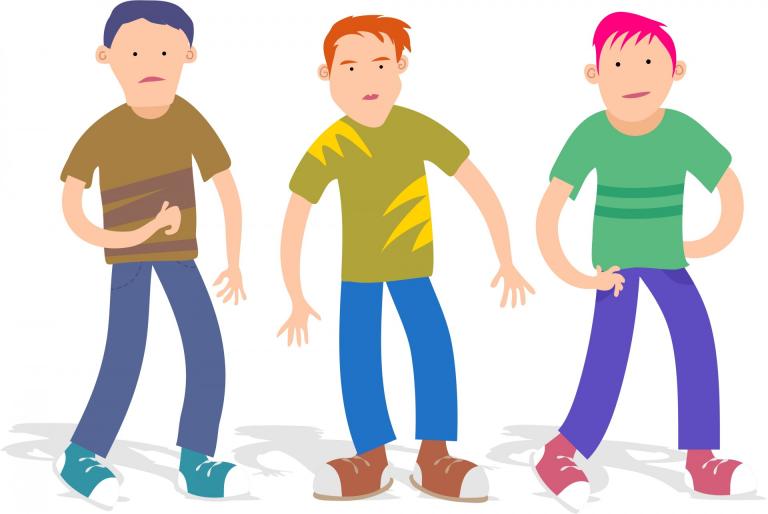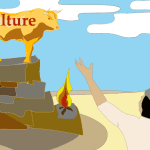The Supreme Court nomination of Judge Brett Kavanaugh is in jeopardy after accusations that when he was a 17-year-old high school student, 36 years ago, he committed sexual assault at a drunken party by jumping on top of a 15-year-old girl and trying to take off her clothes before he was knocked off of her by a friend. Now the question has been whether or not this actually happened. What I find fascinating is that an adult is being held responsible for what he did as a minor.
Are we still morally culpable for what we did as children? And, if so, how far should we take that?
Let’s set aside for now the specifics of the Kavanaugh case and all of the political controversy that goes with it.
What if a 17-year-old boy had mutually consensual sex with a 15-year-old girl? Well, that would be impossible because, legally, a minor cannot consent to sex. So any teen-sex would be sexual assault. I believe that statutory rape is defined as an adult having sex with someone who is underaged–as when the boy would be 18 and the girl 17–so I don’t think teenagers are usually charged with crimes like this. But, technically, the underaged girl cannot consent, and neither can the underaged boy.
Sexual assault, though, is a crime that juveniles can be charged with. And the state of Maryland has no statute of limitations for sex crimes, so that, conceivably, Judge Kavanaugh could go to jail for what he did when he was 17.
Let’s switch to a less fraught legal transgression. Say no sexual contact of any kind took place at that party. (Again, we are stipulating that it did take place, though serious doubts about that have arisen.) The people involved were said to be drinking and had gotten drunk. The legal drinking age is 18. The partygoers were underaged, so they were breaking the law. How can we put someone on the highest court of the land, entrusted to uphold our laws, when he flouted the drinking laws when he was 17? Is that a valid question?
Young teenagers have the status of children. What if a five-year-old boy hit his four-year-old little sister? Should that be construed as assault and battery? When that happens, should parents call the police? Would that be a case of violence against women that would disqualify the boy from holding a public office after he grows up?
Children, including adolescents under the age of 18, are under the charge of their parents. When they do something wrong, the parents are supposed to discipline them, punish them, and teach them how they should behave. It’s the job of parents to socialize, civilize, educate, and morally shape their children.
My impression is that the state generally defers to the parent’s authority and does not criminalize childish misbehavior, though this may be changing. And yet, there are juvenile offenses and reform schools. (Can any of you speak to legal issues here and how the law handles such cases?)
If Judge Kavanaugh is disqualified for what he did when he was a minor, what will that mean? What kind of precedent will that make?
He would not be the first to be blamed for what he did as a child. When Mitt Romney was running for president, some of his old classmates said that he had been a bully, an accusation that Democrats used against him in the campaign.
Do any of you have any skeletons in the closet of your childhood that could ruin you today?
The issue, of course, is not just legal liability. There are statutes of limitations, though, again, not for sexual crimes. There is still a moral liability, with the social stigma that accompanies it.
The law might not convict a man for what he is said to have done when he was 17, but he may still have to suffer from public disapproval and social sanctions. In different cases, that could include losing one’s job, not being hired at a new one, and being banished from respectable society. The argument would be that what the individual did as a minor shows his bad character.
Would that be fair?
Are we not to consider that a child grows up, gets more mature, learns, and changes? Adults are different from children; by definition, they have grown. So should we really measure mature adults by what they did as immature children?
There is another issue in this controversy. Notice that although we might be living in a society that has become lawless in many ways, it is nevertheless highly law-oriented, in the theological sense.
Christians believe that our offenses can be cancelled out. Christians believe in conversion, repentance, forgiveness, grace, and redemption.
Secularist society has nothing like that sort of thing. The law has statutes of limitations (sometimes) and will no longer punish you if you have “paid your debt to society” by serving your sentence. But in today’s climate, there is no forgiveness and no forgetting.
Contrast how we human beings are–sinful, yet judgmental; lawless, let legalistic–and how God is, who promises, “I will forgive their iniquity, and I will remember their sin no more” (Jeremiah 31:34).
Illustration: “Teenage Boys” via PublicDomainPictures.net, CC0, Public Domain

















